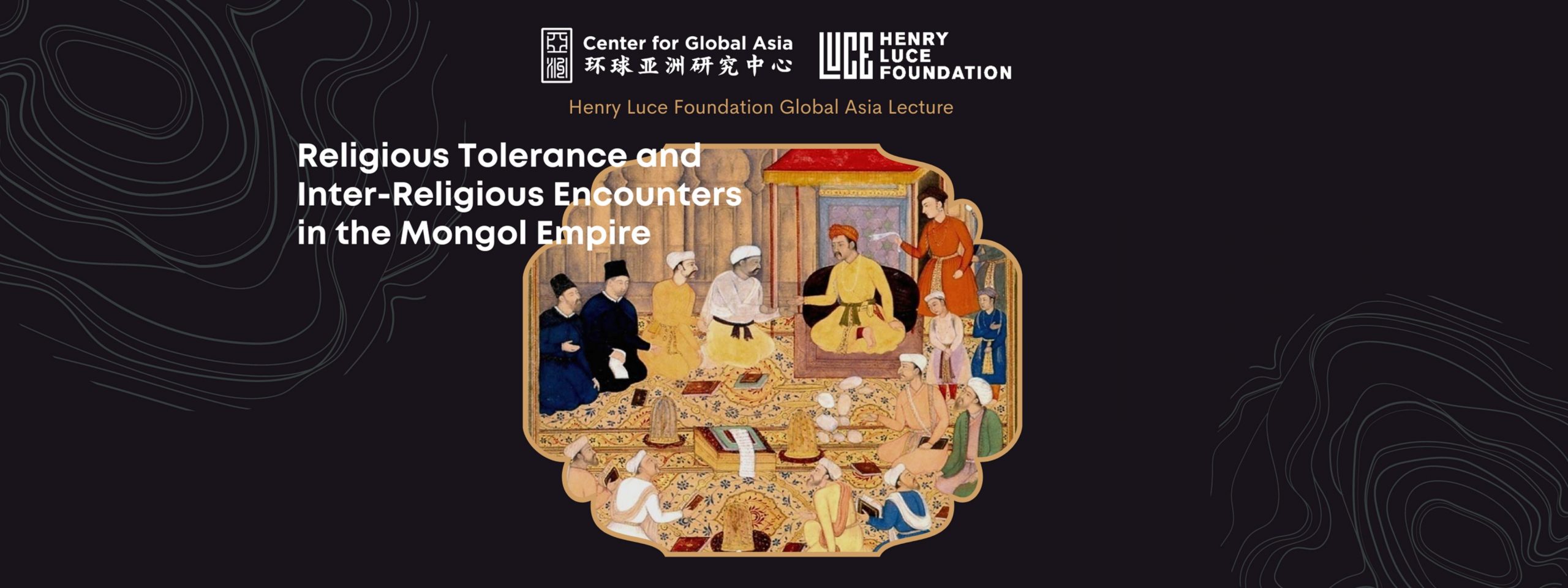CONTACT US
Email: shanghai.cga@nyu.edu
Phone Number: +86 (21) 20595043
WeChat: NYUShanghaiCGA
Address:
Room W822, 567 West Yangsi Road,
Pudong New Area, Shanghai, China

© 2024 All Rights Reserved

Speaker: Jonathan Brack
Venue: Hosted via Zoom
Date & Time:
2020-11-12 | 19:00-20:30 (Shanghai)
2020-11-12 | 6:00-7:30 (New York)
2020-11-12 | 15:00-16:30 (Abu Dhabi)
Research on the Mongols’ attitudes toward the religions of the conquered people presents conflicting views. On the one hand, scholars argue that as Steppe people, the Mongols were either pragmatists or indifferent when it came to the religious practices and beliefs of their subjects, thus explaining the religious freedom they granted them and even their exemption of their subjects’ religious clergy from taxation. On the other hand, the Mongols are presented as inquisitive and curious, even high-minded, observers of the beliefs of their subjects, promoting, hosting and directly engaging in heated inter-religious debates at their courts that entailed Christians, Muslims, Buddhists and Daoists.
This presentation is divided into two parts. In the first part, we will offer a new approach to the question of the Mongols’ pluralistic attitude. We will argue that to explain the Mongols’ religious policies, we must view them as complementary to the Mongols’ own domestic mode of “empirical religiosity.” In the second part, we will turn our attention to one chief example of court-sponsored inter-religious interactions: the encounters between Buddhists and Muslims at the Ilkhanid court in Iran. We will use this example to explore the religiously competitive and dynamic arena of the court, where religious interlocutors clashed over attempts to gain the allegiance, or even conversion, of the khans. We will further ask how these encounters shaped the knowledge and perspectives of “local” religious interlocutors on their new religious competition.
Jonathan (Yoni) Brack is Assistant Professor in the Department of Middle East Studies at Ben-Gurion University of the Negev, Israel. He received his PhD in 2016 from the University of Michigan, and was a postdoctoral fellow in The Martin Buber Society of Fellows at the Hebrew University of Jerusalem (2017-2020). He studies medieval and early modern Iran and the Mongol Empire. His research examines Muslim-Buddhist exchanges and polemics in Ilkhanid Iran, sacral kingship, and Mongol conversion to Islam. His recent and forthcoming publications include “A Mongol Mahdi in Medieval Anatolia: Reform, Rebellion, and Divine Right in the Post-Mongol Islamic World” (Journal of the American Oriental Society, 2019), and “Disenchanting Heaven: Interfaith Debate, Sacral Kingship, and Conversion to Islam in the Mongol Empire, 1260-1335 (Past & Present, forthcoming 2021). He recently co-edited, together with Michal Biran and Francesca Fiaschetti, a volume title Along the Mongol Silk Roads: Merchants, Generals, Intellectuals (University of California Press, 2020).
Introduction by Tansen Sen, Director of the Center for Global Asia, Professor of History, NYU Shanghai; Global Network Professor, NYU.
To our visitors:
• RSVP may be required for this event. Please check event details
• Visitors will need to present a photo ID at the entrance
• There is no public parking on campus
• Entrance only through the South Lobby (1555 Century Avenue)
• Taxi card
• Metro: Century Avenue Station, Metro Lines 2/4/6/9 Exit 6 in location B
• Bus: Century Avenue at Pudian Road, Bus Lines 169/987
Email: shanghai.cga@nyu.edu
Phone Number: +86 (21) 20595043
WeChat: NYUShanghaiCGA
Address:
Room W822, 567 West Yangsi Road,
Pudong New Area, Shanghai, China

© 2024 All Rights Reserved